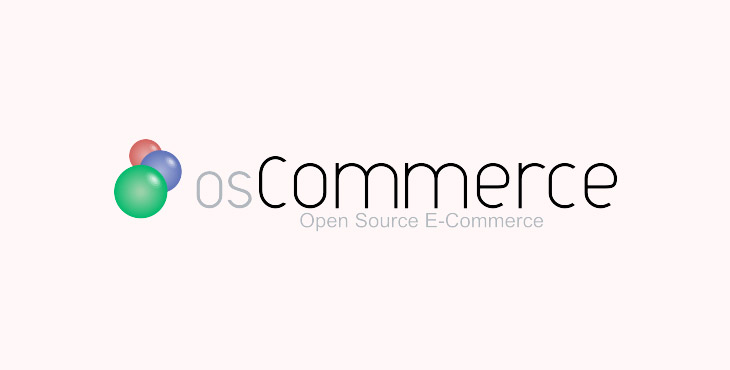
No matter where you fall on the business learning curve, it is always worth knowing about how different technologies complement and why they should be integrated into your existing systems. So, are you owning a well-oiled business?
Running an eCommerce business can be insanely tricky. And not all of them have the same requirements, therefore there is no point in looking for a cookie-cutter solution. The only way we have is to experiment by deploying, integrating different software platforms such as BigCommerce, Magento, WooCommerce, Shopify development, and solutions.
Coming straight to the point, integrating the eCommerce portion of their website with their Content Management System (CMS) platform is pretty hot on the heels these days.
This definitely leads to an increase in ROI. For instance, increase in the use of personalized messages, more and more use of conversion rate optimization (CRO) tactics, ramp up your SEO strategies and what not but at the same time, several aspects like user experience, site maintenance, and overall eCommerce conversions are often disregarded. The question is how to get the best of both worlds. Before that let us understand the significance of integrating eCommerce and Content Management System.
One of the biggest advantages of this integration is you can include third-party add-ons to ensure easy payments, processing, and tax compliance. In addition to this, integrating CMS and eCommerce lets you avoid data duplication and/or manual data entry — allowing you to keep multiple systems in sync. Right from the accurate view of product data, available inventory or latest pricing and promotions in real-time, integration is meant to hit your customer’s experience. So I say why not?
Further below I would like to mention several benefits availed by businesses when integrating eCommerce and content management systems.
1. Get rid of manual entries
One of the best and most effective ways to attract new customers is product merchandising. In the present era, where information can be found anywhere, and maybe that’s the reason why it is important to provide as much information regarding the product. Information can be provided in several ways such as robust product descriptions, imagery, videos, and even how-tos.
In addition to this, classifying products is another advantage businesses must make the most of. I mean your eCommerce website should act in such a way that it allows its end-users to find what they are looking for in a fast manner. Product attributes are relevant to product categories making it faster for your customers to find the one they are seeking around for in the entire site.
2. Reduce refunds and returns

With multiple sales and channels, chances of refund and returns become high. In such cases, one must try to give true Omni-experience to their end customers. If simply put, it is an experience that is best in regards to both device and channel-agnostic.
By focusing on aspects like channel-specific pricing, promotions, and special offers, one can easily promote specific channels and enables you to cut the costs and increase speed to market.
Having even 1% of inaccuracy can certainly lead to an increase in back orders, missed fulfillments, SLAs leading to cancellations, refunds and a high amount of loss of revenue.
3. Increase customer self-service

Unlike before, B2B customers now will be able to do business 24/7 whenever and wherever they want.
A customer’s dashboard comprises all the information a B2B customer needs ranging from purchase history to previously placed orders, quotes, saved charts, order lists and so more.
Moreover, here they can have a full financial view of invoices including both aging balance and credit balance.
Customers strongly dislike broken or outdated links on ecommerce websites, which negatively impacts their experience and trust.
Therefore, it is crucial for businesses to diligently eliminate such issues by conducting regular audits, performing quality checks, and promptly addressing any identified problems.
Maintaining up-to-date and functional links enhances customer satisfaction, credibility, and conversion rates.
Is Integrating eCommerce And Content Management Difficult?
As I said before integration is a usual part of developing any web solution. For instance, if your site is selling products; you need to integrate eCommerce and if your site acts as a customer communication channel such as a client portal, it needs to integrate with the CRM.
The good news is most of the time the process feels like a cakewalk where everybody has their own unique way to succeed. But there are times businesses often find it difficult to integrate eCommerce and content management platforms due to core business purposes. So the question is how to make things seamless.
First of all, companies need to recognize the ever-increasing number of services accessible through cloud-powered connections, like a call center solution or business phone system. In addition to this, you must let them identify how they want their shopping experiences to function, rather determining the minimum level of content and eCommerce services.
And last but certainly not the least, they must plan for the continuing evolution of digital experiences and the platforms that produce them.
Best Platforms and Content Management System for eCommerce Websites
Here I would like to shed some light on some of the best options that may suit your needs most aptly.
1. Magento

If you are looking for the best open-source platform written in PHP, Magento is the name to reckon with some of the biggest brands like Coca Cola, Nike, and Burger King.
Available in three versions, Enterprise Edition, Enterprise Cloud Edition, and Community Edition, Magento offers it all! However, the enterprise cloud edition and enterprise edition are paid and typically suited for bigger enterprises.
Broad scalability and flexibility, supported by Amazon Web Services under the system are some of the best reasons to choose Magento development. Moreover, it is SEO-friendly and has a sizeable community for support.
2. Shopify

Get started with your eCommerce venture by choosing some out-of-the-box solutions such as Shopify development. The platform offers a set of plans where each of them sets up a blog, something more to the website. Some of its intuitive features include discount codes, manual order creation, and even fraud analysis.
By working with Shopify experts, you can maximize the potential of these features and ensure a smooth and successful online store setup.
You might also find this interesting as the platform offers a retail Point of Sale (POS) package including everything from staff management via individual PINS, hardware integration and a payment gateway and so more. Google, Wikipedia, and Tesla are brands using Shopify. Moreover, amazon’s merchant Webstore is entirely based on Shopify.
3. WooCommerce

This open-source platform is pretty known for hosting an eCommerce platform on WordPress. Much like the CMS itself, WooCommerce is known for its simplicity and suitability for small as well as larger online stores. From a developer perspective, WooCommerce works wonders when it comes to security and scalability. Tons of third-party integrations can work with WooCommerce, including Zapier, PayPal, MailChimp, Stripe, United States Postal Service and Amazon Web Services.
In addition to this, certain add-on extensions for WooCommerce must be considered such as social media integration, cart add-ons, one-page checkout, waitlist, and pre-orders.
4. Bigcommerce

Another major player in the world of hosted e-commerce software is BigCommerce, the simple-to-use shopping platform for entrepreneurs and merchants across the globe. Even if you have just started on your long and exciting journey to success, you can choose this website builder and here’s why?
Mobile-friendly themes- Available with a complete range of mobile-friendly themes for your store, BigCommerce makes your store easily accessible for customers using mobile devices like never before.
SEO tools- Unlike others, this website builder optimizes your store to such an extent and it ranks near the top of results on leading search engines such as Google or Bing.
Shipping Options- BigCommerce also includes a variety of shipping options for your customers. Calculated shipping costs are also available for a number of providers including UPS, USPS, FedEx, Australia Post, Royal Mail, Canada Post and more.
Also, BigCommerce has first-class payment options so anyone can choose between PayPal, Stripe, and Square, and the list goes on! If you want a simplified pricing structure, unlimited user accounts for staff, and expert integrations with eBay, Amazon, Facebook and more.
5. Drupal Commerce

Powered by Drupal Content Management System is a great advantage of Drupal commerce. It gives powerful functionality of its native CMS, the only issue here is lacking backward compatibility. Also, migrating to a new version of the CMS can be slightly cumbersome.
Other advantages of Drupal include flexibility, easy to use and being extensible in nature. Apart from this, standard features such as SEO-friendliness, PCI compliance for safe payments and analytics for your site.
6. OsCommerce

Available as free software, OsCommerce works on any web server including PHP and MySQL. SEO optimization is also available via developers along with other marketing services such as PPC. Unlimited categories and product listing are available, as is a multilingual setup. Another plus point on osCommerce’s side is the option for lifetime upgrades and the great support provided.
In a nutshell,
Integrating eCommerce and Content Management System, businesses would be able to make the best move forward for their company.

Leave a Reply
You must be logged in to post a comment.